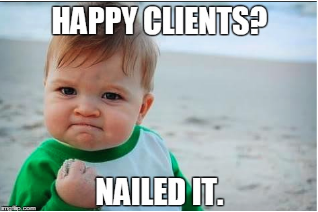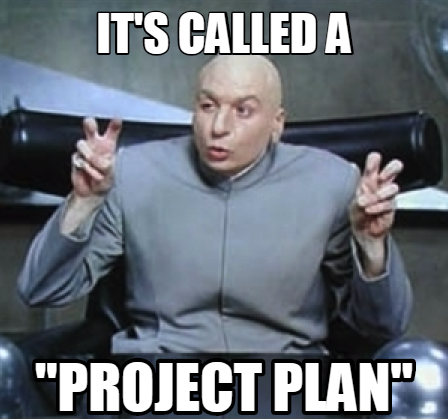Why Should You Care About Customer Onboarding?
It’s simple. A refined customer onboarding process creates a better outcome for the customer.
No matter what you do, if you work with clients, your customer onboarding process needs to be rock solid and poised to evolve as your company grows.
When you create this process with the help of your team, your company benefits twofold, by fostering a culture of mutual understanding and by helping your customers to better achieve success. A successful process will explain to the client how they can get the most out of your service as it sets the bar for effective communication and expectations for both sides.
At Impulse Creative, we drastically updated our onboarding strategy about six months ago. Since then, we have a 100% success rate with our audit to retainer clients. If you want to learn more about our audit process go here.

Customer onboarding includes all the things that gradually (not overwhelming or all at once) introduces your company to the client. The process includes meetings, emails, phone calls and a few more internal processes. If you don't have a structure for onboarding clients, or your onboarding process seems to be broken, you are in luck.
Here are 5 ways to fast-track your client onboarding that will make your projects and retention more successful, Impulse Creative guaranteed. :)
1. Sales Handoff
Our sales handoff is run by the project manager and the salesperson who sold the account. It also includes the entire team that will be working on the project. The salesperson briefs the team about everything they discussed and discovered in the sales process, including:
- Any documentation the client shared
- Client’s story
- Who they are
- Why they are
- What they are
- Quick wins
- Goals
- Summary of roles
- Contract breakdown
- Project plan
- Project hours/budget
- Project hours by team member
2. Kickoff Email
Our team has had fun with this email (we have fun with everything really.) Our videographer produced a handful of videos (like this one) that are customized to each project. We send these out the week before the discovery meeting.
Along with the video, we send over the agenda for the first meeting and any client action items we need before the meeting. I also set up any ongoing weekly meetings we need.
All of this helps to set up a foundation for solid communication between the client and the person managing the project.
3. Defined Roles
This can happen on video and sent prior to your first team-wide meeting (like ours is), or you can discuss this in your discovery meeting. Either way, the client needs to know all the members of the team, how to contact them and the correct procedures to do so.
I stress to the clients to include me, the project manager, in every piece of the communication with our team so that everything is tracked and visible to multiple team members. However, there are times the team will need to call the client and vice versa. That information also needs to be communicated and somewhere easy to find, like a Slack channel or Asana update.
4. Project Plan
We created a template that hold all of the key information about a project, like contact info and times, so both the team and the client never have to look long for anything.
This is a great example of how our efforts to make everything as easy as possible for the client. No one wants to sift through countless emails to find a deliverable that was sent 6 months ago.
Each project plan includes:
- Contact information for both teams, including everyone’s individual their roles
- Project timeline
- Meeting agendas
- All documents shared between the client and the team

5. Discovery Meeting
This meeting is an introduction of the project’s entire team, including both Impulse Creative crew members and the client’s team.
Discovery meetings can happen just as successfully in person as they can with everyone 5000 miles away from each other. Learn more about video conferences in this blog: Ready for your closeup? Why video has clients and agencies poised for success.
The purpose of this meeting is for the team to get to know everything they need from the client to begin the project. Over the course of the project, each team member will needs to extract the specific information from the client in order to be successful. In this beginning stage, our goal is to figure out the why, how and what of the company.
Then, we define their goals and competitors. This way, we can dig in deeper on our own to devise the best strategy for accomplishing the client’s goals. We also explain our process, best ways to communicate and next steps in the meeting. We try to make these fun to keep the excitement rolling from sales to engagement!
No sale is finished just because the contract is signed. That’s just the beginning. Customer onboarding is the client’s first impression of how the entire project will go. Start your follow-through on the best possible foot.
In the past, our onboarding process began with just a discovery. Later, the process grew as we learned from our client’s success and failures. We had many team-wide discussions about how we could improve onboarding and slowly, as our agency grew so did the process.
Both our needs and client’s needs led the evolution of our strategy into a efficient and effective onboarding process. And for us, the better our onboarding got, the more our clients kept coming back for more, or even better, signing retainers.
Want to experience our onboarding process?





